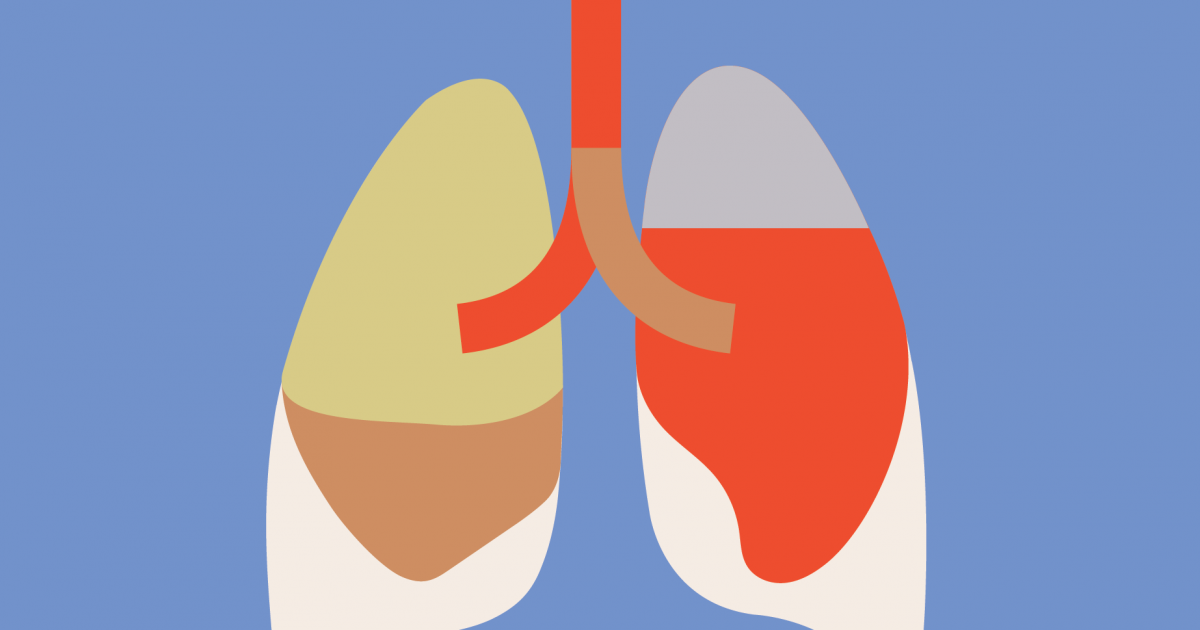World Lung Cancer Day
- World Lung Cancer Day raises awareness about the risk factors for lung cancer and how to promote lung health.
- Lung cancer is the second most common cancer (second to prostate cancer in men and breast cancer in women) and the leading cause of cancer-related death in both men and women.
- According to the Annual Report to the Nation on the Status of Cancer, lung cancer saw 5.2% and 4.3% decreases in men and women respectively through 2018, but the disease is still projected to affect more than 230,000 people this year in the United States, according to the American Cancer Society.
According to the Annual Report to the Nation on the Status of Cancer, lung cancer saw 5.2% and 4.3% decreases in men and women respectively through 2018, but the disease is still projected to affect more than 230,000 people this year in the United States, according to the American Cancer Society.
Read MoreNew Options for Non-Small Cell Lung Cancer
In May, the Food and Drug Administration (FDA) approved Sotorasib (otherwise known as Lumakras) for non-small cell lung cancer (NSCLC) patients carrying the KRAS G12C mutation. This mutation made lung cancers mostly resistant to previous drug therapies, making this approval a game-changer for patients. Non-small cell lung cancer comprises around 84% of all lung cancers, and the KRAS G12C mutation is present in around 13% of NSCLC patients.A clinical trial released at the American Association for Cancer Research also found that an immunotherapy and chemotherapy treatment combination prior to surgery led to longer survival outcomes for patients with NSCLC. Nivolumab (Opdivo) and chemotherapy treatment before surgery increased the complete response rate in patients with NSCLC to 24% compared to from 2.2% with chemotherapy alone. This combination treatment did not lead to greater toxicity for patients or delay surgeries.
In addition, new research has shown for patients with early-stage NSCLC, immunotherapy following surgery and chemotherapy lowers the risk of recurrence. Atezolizumab, a type of immunotherapy drug, was shown to be especially effective in patients who have tumors with high levels of PD-L1, a type of protein receptor. Patients with stage II to IIIA and levels of PD-L1 of 1% or greater had a 34% reduction in risk of cancer recurrence following Atezolizumab therapy.
Finally, in March, the FDA approved Lorlatinib as a targeted first-line treatment for patients with metastatic NSCLC whose tumors are positive for anaplastic lymphoma kinase (ALK). Most patients with the ALK mutation have never smoked and are younger women, making this new approval significant in a different demographic. Lorlatinib joins the treatment lineup as one of five drugs for ALK-positive NSCLC treatment.
New Options for Non-Squamous Non-Small Cell Lung Cancer
Keytruda, a checkpoint inhibitor, is a class of immunotherapy drugs that blocks a "don't-kill-me signal" from cancer cells. It was recently found that patients with non-squamous non-small cell lung cancer benefited from this treatment. Patients, regardless of whether they have the KRAS G12C mutation or not, responded favorably to this drug even when it was not paired with chemotherapy.
New Evidence on Quitting Smoking After Lung Cancer Diagnoses
The Annals of Internal Medicine released in late July a study that presented evidence that lung cancer patients who quit smoking post-diagnosis tend to have better prognoses. The median survival time for lung cancer patients who quit smoking after diagnosis was 6.6 years compared to that of their smoking counterparts, which was 4.8 years. This new research sheds light on not only preventative measures against lung cancer incidence, but also how behaviors after diagnoses may impact overall health.
How to Maintain Overall Lung Health
There are many preventative measures you can take to reduce the risk of lung cancer. Commonly known are not smoking (or stopping if you do) and limiting the inhalation of second-hand smoke. In addition, limiting radon exposure (an odorless gas that results from uranium breakdown and can be found moving up from the ground all across the United States) and stopping the inhalation of other known carcinogens can all prevent lung cancer, according to the American Cancer Society. Overall, a healthy diet with many fruits and vegetables may help protect individuals who do not smoke.
In addition, lung cancer screening can be life-saving by detecting early-stage lung cancer. Low-dose CT scans or chest X-rays are common, non-invasive ways of detecting lung cancer and can be recommended if you are in a high-risk group or have symptoms such as a persistent cough, chest pains, bloody mucus or trouble breathing/swallowing.
Learn more about SurvivorNet's rigorous medical review process.


